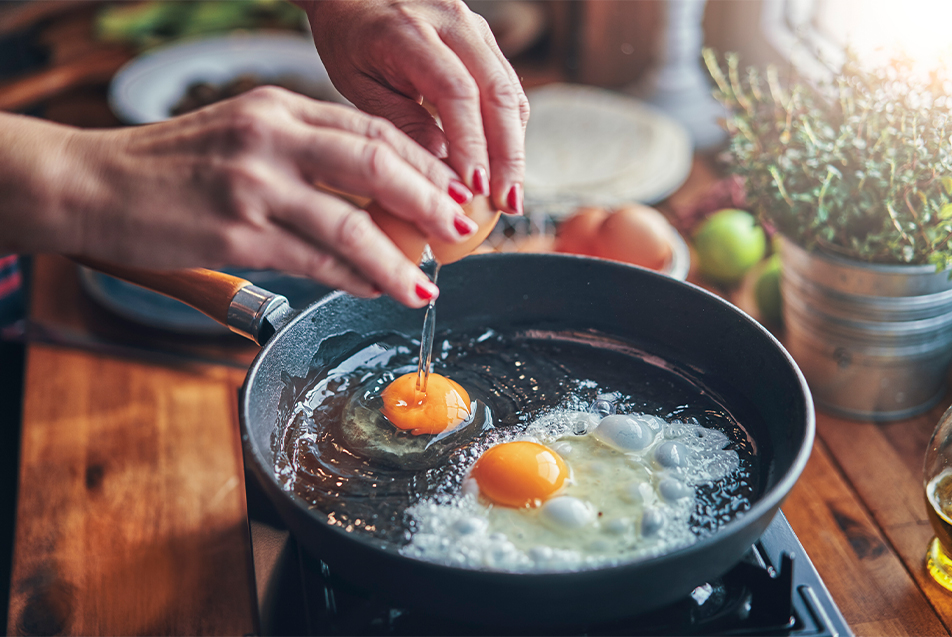
A symbol of new life, the egg has become an edible mascot of the Easter holiday. Whether you dye them or devil them, they’re everywhere; Hidden in yards, boiled and dressed on dining room tables. Just in time for Sunday’s celebrations, our Parkview dietitians share the truth about cholesterol, refrigeration and all things egg.
The latest on cholesterol
There is a lot of conflicting nutrition information regarding eggs and cholesterol. One camp believes they can be a part of a healthy diet, while the other argues they should be avoided because they contain cholesterol. In the past, it was generally recommended to limit eggs due to their cholesterol content. For example, the 2010 USDA Dietary Guidelines suggested limiting consumption of dietary cholesterol to 300 mg/day. For reference, one large egg contains 185 mg of cholesterol.
However, the 2015 USDA Dietary Guidelines did not include a quantitative limit for dietary cholesterol, because “more research is needed regarding the dose-response relationship between dietary cholesterol and blood cholesterol levels.” Dietary cholesterol is only found in animal foods, which are often also higher in saturated fat. The 2015 Guidelines recommend that less than 10 percent of calories per day come from saturated fats. Eggs yolks contain cholesterol, but they are not high in saturated fat. The 2015 Guidelines state that eggs can be consumed along with a variety of other protein foods as part of a healthy diet.
The facts on food safety
With Easter this weekend, it is important to keep several food safety tips in mind when buying, preparing, and serving eggs. Fresh eggs can contain bacteria called Salmonella, which can cause foodborne illness (also known as food poisoning). In order to prevent illness from bacteria, the FDA (Food and Drug Administration) recommends you buy eggs without any cracks, keep eggs refrigerated, cook eggs until yolks are firm, and cook foods containing eggs thoroughly.
But the traditions of this holiday present an interesting risk, with hard-boiled cooked eggs being left out for prolonged periods of time for Easter egg hunts. Cooked eggs should never be left out of the refrigerator for more than 2 hours or more than 1 hour when temperatures are above 90 degrees F. Bacteria that can cause illness to grow quickly at warm temperatures (between 40 degrees F and 140 degrees F). Keep this in mind when serving those deviled eggs or hiding them around the house.
The leftovers
Hard-boiled eggs (in a shell or peeled) should be used within 1 week of cooking. So what is one to do with all of those leftover dyed Easter treasures? Try this super simple, healthy and delicious recipe!
Avocado Egg Salad (mayo-free)
6 eggs, hard-boiled
1 ½ ripe avocados, peeled and mashed
1 tablespoon fresh lemon or lime juice
½ teaspoon sea salt, to taste
1. Peel and roughly chop the hard-boiled eggs.
2. Add the avocado to a mixing bowl with lemon juice and sea salt. Mash the avocado, leaving it slightly chunky if desired. Add the chopped hard-boiled eggs and stir well to combine. Eat on toasted bread with watercress or greens of choice.
Adapted from a recipe featured on the roasted root.
Sources:
https://www.fda.gov/food/resourcesforyou/Consumers/ucm077342.htm




